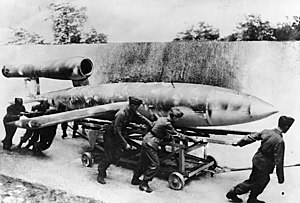July 28, 1914, Emperor Franz Joseph of the Austro-Hungarian Empire declared war on Serbia, responding to Serbia's answer to Austro-Hungary's ultimatum concerning the assassination of the heir to the throne, the Archduke Franz Ferdinand.
Even at the time, Emperor Wilhelm II of Germany thought the Serbian response had "removed all pretext for war." By the standards of the day, the assassination plausibly served as a causus belli, but even so, there were dangers.
Justified or not, the Austrian declaration of war comes down as one of the most disastrous decisions of all time by a major state.
Here is the declaration:
"To my peoples! It was my fervent wish to consecrate the years
which, by the grace of God, still remain to me, to the works of
peace and to protect my peoples from the heavy sacrifices and
burdens of war. Providence, in its wisdom, has otherwise decreed.
The intrigues of a malevolent opponent compel me, in the defense of
the honor of my Monarchy, for the protection of its dignity and its
position as a power, for the security of its possessions, to grasp
the sword after long years.
"With a quickly forgetful ingratitude, the Kingdom of Serbia, which,
from the first beginnings of its independence as a State until
quite recently, had been supported and assisted by my ancestors,
has for years trodden the path of open hostility to
Austria-Hungary.
"When, after three decades of fruitful work for
peace in Bosnia and Herzegovina, I extended my Sovereign rights to
those lands, my decree called forth in the Kingdom of Serbia, whose
rights were in nowise injured, outbreaks of unrestrained passion
and the bitterest hate.
"My Government at that time employed the
handsome privileges of the stronger, and with extreme consideration
and leniency only requested Serbia to reduce her army to a peace
footing and to promise that, for the future, she would tread the
path of peace and friendship. Guided by the same spirit of
moderation, my Government, when Serbia, two years ago, was
embroiled in a struggle with the Turkish Empire, restricted its
action to the defense of the most serious and vital interests of
the Monarchy. It was to this attitude that Serbia primarily owed
the attainment of the objects of that war.
"The hope that the Serbian Kingdom would appreciate the patience and
love of peace of my Government and would keep its word has not been
fulfilled. The flame of its hatred for myself and my house has
blazed always higher; the design to tear from us by force
inseparable portions of Austria-Hungary has been made manifest with
less and less disguise.
"A criminal propaganda has extended over the
frontier with the object of destroying the foundations of State
order in the southeastern part of the monarchy; of making
the people, to whom I, in my paternal affection, extended my full
confidence, waver in its loyalty to the ruling house and to the
Fatherland; of leading astray its growing youth and inciting it to
mischievous deeds of madness and high treason.
"A series of
murderous attacks, an organized, carefully prepared, and well
carried out conspiracy, whose fruitful success wounded me and my
loyal peoples to the heart, forms a visible bloody track of those
secret machinations which were operated and directed in Serbia.
"A halt must be called to these intolerable proceedings and an end
must be put to the incessant provocations of Serbia. The honor and
dignity of my monarchy must be preserved unimpaired, and its
political, economic, and military development must be guarded from
these continual shocks. In vain did my Government make a last
attempt to accomplish this object by peaceful means and to induce
Serbia, by means of a serious warning, to desist.
"Serbia has
rejected the just and moderate demands of my Government and refused
to conform to those obligations the fulfillment of which forms the
natural and necessary foundation of peace in the life of peoples
and States. I must therefore proceed by force of arms to secure
those indispensable pledges which alone can insure tranquillity to
my States within and lasting peace without.
"In this solemn hour I am fully conscious of the whole significance
of my resolve and my responsibility before the Almighty. I have
examined and weighed everything, and with a serene conscience I set
out on the path to which my duty points. I trust in my peoples,
who, throughout every storm, have always rallied in unity and
loyalty around my throne, and have always been prepared for the
severest sacrifices for the honor, the greatness, and the might of
the Fatherland. I trust in Austria-Hungary's brave and devoted
forces, and I trust in the Almighty to give the victory to my arms."
FRANZ JOSEPH
Thus with flowery language of the nineteenth cenury did the Emperor Franz Joseph initiate the destruction of his own empire and that of his allies, Germany and the Ottomans. The war also destroyed the Tsarist Empire and seriously damaged the British and French Empires. On the whole, it was a disastrous introduction to the Twentieth Century.




 German fantasies of victory were fading fast.
German fantasies of victory were fading fast.










